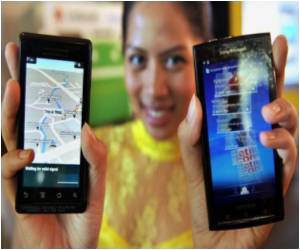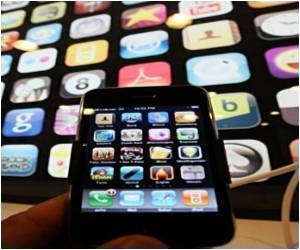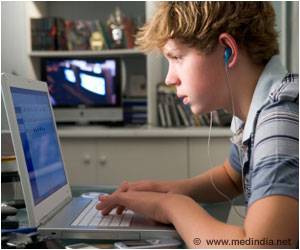Hill tribe children energetically slide their fingertips over tablet computer screens practising everything from English to mathematics and music, in a rural classroom in the Thai highlands.

For opponents of the plan, however, it is an expensive gimmick designed to boost the popularity of the ruling party among parents -- and the next generation of voters.
At Ban San Kong school in Mae Chan in the northern province of Chiang Rai, 90 children received a tablet computer last year as part of the "One Tablet Per Child" policy that was part of the government's election campaign in 2011.
Previously the school had only a few desktop computers with limited Internet access.
Now, with headphones over their ears for one hour a day during class, the students use the devices for activities including singing English songs, watching cartoons about the life of Thailand's revered King Bhumibol and playing math games.
With the school year just beginning, and the new tablet content yet to arrive, they are left to revise their lessons of the previous year as their teacher Siriporn Wichaipanid sits and watches.
Advertisement
"I have some knowledge. At home, I use an iPad," she said. But "if I don't understand, I don't know how to teach the children".
Advertisement
"The students cannot speak Thai very well but they can hear sounds more clearly from the tablets and repeat them," said their teacher from the previous year, Wannawadee Somdang.
"Some of them dare not ask questions. It's easier when they listen to the tablets."
For now only two of the 90 students are allowed to take the computers with them after class to use in their homes, which often lack electricity.
"They don't have Wi-Fi and it's not convenient for them to charge the batteries. And most importantly their parents have no knowledge about the tablets," said school principal Uthai Moonmueangkham.
But using devices that would normally be out of reach for the kingdom's poorest children is progress, even if it is only just one hour a day, he said.
"They have the same opportunities as those in the city," Uthai said.
Reducing the "education gap" between the urban rich and rural poor is one aim of the project, said Surapol Navamavadhand, an advisor to the minister of information and communication technology.
By the end of 2014, the government plans to distribute handheld computers to 13 million school children at a cost of about $100 each -- a total of $1.3 billion -- and then replace them every two years.
About 850,000 Chinese-made devices have already been given out, and the government says it will soon launch a tender offer for another batch of about 1.7 million tablets, in what it has described as the world's largest handout of the devices for education.
Experts warn that the computers offer no guarantee of an increase in education standards.
The tablets are "just another tool" like a pencil, according to Jonghwi Park, an education technology specialist at UNESCO in Bangkok.
"It's not about what to use, it's about how to use it," she said, urging governments considering introducing new technology for learning to think hard about whether it will really help them achieve their goals.
Critics of the Thai education system say much more radical changes are needed.
"If you want to deal with the education in Thailand, I can tell you that the whole system must be demolished," said Somphong Chitradub, an associate professor specialised in child education at Bangkok's Chulalongkorn University.
"Our classrooms are passive, tiring and boring," he said.
Most Thai children are encouraged to memorise information and "lack courage to express opinions", he added.
As a result, while other Asian nations fared well in the most recent global education survey by the Organisation for Economic Co-operation and Development in 2009, Thailand came about 50th out of 65 countries in the rankings for reading, maths and science.
A mediocre performance compared with other nations that "focus a lot on process of thinking", admitted Rangsan Maneelek, an advisor to the education ministry.
While the Thai education system places importance on whether the answer is right or wrong, other nations look at how students reached their conclusion, he said.
But he added that the tablets would help by enabling students to "surf the world for knowledge".
And if some people worry about the possibility of children using the computers to look at pornography or play violent video games, others stress the need to prepare students for the digital era.
"For the kids these days, one of the most important capacities... for them to live in the 21st century is to know how to integrate those devices into their life," UNESCO's Park said.
"Without those skills, they cannot get a job."
Source-AFP









